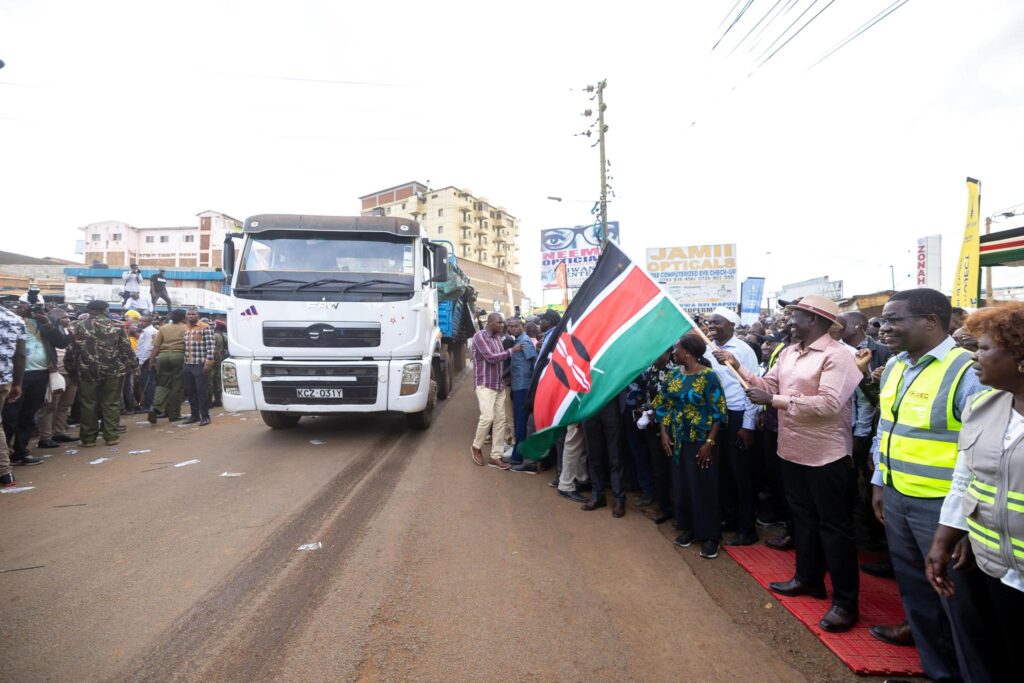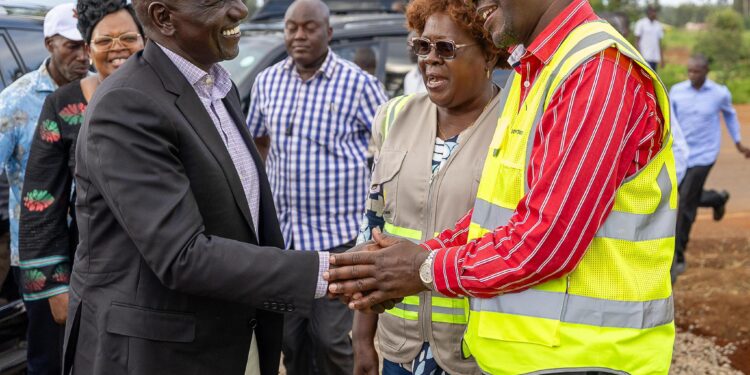President William Ruto has reaffirmed his administration’s commitment to a broad-based government, describing it as the key to uniting the country and delivering equitable development. Speaking during the recent development tour in the Mt. Kenya region, the President emphasized that his government is working for all Kenyans, regardless of political alignment or ethnic background. He maintained that a truly inclusive administration is essential for fostering peace, stability, and prosperity across the country.
Addressing a large crowd in Nanyuki town, President Ruto dismissed claims that his government is favoring certain regions over others. He made it clear that no community, county, or region will be sidelined under his leadership. According to the President, the broad-based approach is about ensuring every Kenyan has access to government services and development opportunities, not just those who supported him politically. “We are going to walk together to make our country more inclusive, prosperous, and better for all of us,” he said.
The President’s remarks appeared to respond to sentiments expressed by former Deputy President Rigathi Gachagua, who has been associated with the narrative that the Mt. Kenya region should receive preferential treatment due to its political support for the ruling coalition. President Ruto distanced himself from such views, reiterating that no region must exit government for another to feel accommodated. His vision, he said, is one of national unity and collective growth rather than competition and exclusion.
During his visit, President Ruto launched a series of projects aimed at improving infrastructure, education, and economic empowerment. He flagged off the Last Mile Connectivity Project in Laikipia West Constituency, which will see over 9,000 households connected to electricity. He also commissioned the rehabilitated Ng’arachi Comprehensive School, one of nine schools restored following destruction caused by banditry and cattle rustling. These interventions, he said, are essential in restoring dignity and opportunity to communities previously left behind.

In addition to education and energy, the President addressed the needs of local entrepreneurs and youth by handing over car wash machines to boda boda operators and delivering a school bus to Dr. Wachira Secondary School in Kiamariga. He visited the Nanyuki Affordable Housing Project, which is now 97 percent complete and has already created over 1,000 jobs for youth and women. He emphasized that allocation of housing units will prioritize ordinary Kenyans such as mama mboga and boda boda riders to ensure the program uplifts those at the bottom of the economic pyramid.
President Ruto’s visit also included laying a foundation stone for the construction of ten classrooms at Nanyuki District Education Board Primary and Junior Secondary School, and inspecting the KSh350 million Nanyuki Modern Market. He announced that tendering for an additional 1,000 housing units was nearing completion, indicating more opportunities ahead for employment and growth. The Ministry of Roads was also directed to expedite long-delayed tarmacking projects, including the Liki-Ndukuma and Trojan-Ruai roads, to ease transportation challenges in the region.
In Kieni Constituency, the President commissioned more classroom blocks, launched electricity projects, and inspected progress at the Narumoru Market. These projects were welcomed by residents and leaders alike, who praised the President for delivering on development without discriminating based on political affiliation. Nyeri Governor Mutahi Kahiga lauded the Head of State for his consistent visits and tangible achievements, asserting that Mt. Kenya residents are fully behind the government’s agenda.
President Ruto stated that his administration has made notable progress in addressing insecurity in Laikipia and other parts of the country. He noted that criminal elements disrupting peace and development must be dealt with decisively. This, he added, is necessary to allow communities to return to normal life and benefit from government services. He also reassured residents that the government will scale up efforts to resolve human-wildlife conflict, which has long plagued agricultural communities in the region.
At the heart of the President’s message was a call for unity and shared responsibility in nation building. He stressed that Kenya’s true potential can only be realized when leaders and citizens alike rise above ethnic, regional, and political divisions. A broad-based government, he said, is not about political deals or tokenism, but about setting the foundation for a more fair, inclusive, and dynamic society that works for everyone.
President Ruto’s tour served as a demonstration of his vision for a new style of governance in Kenya—one that emphasizes inclusivity, service delivery, and national unity. His focus on projects that cut across regions and communities sends a strong signal that the government’s development agenda is meant for all Kenyans. As he continues to implement this broad-based approach, many citizens are beginning to view it not just as a political strategy, but as a framework for sustainable growth and peace in the country.










